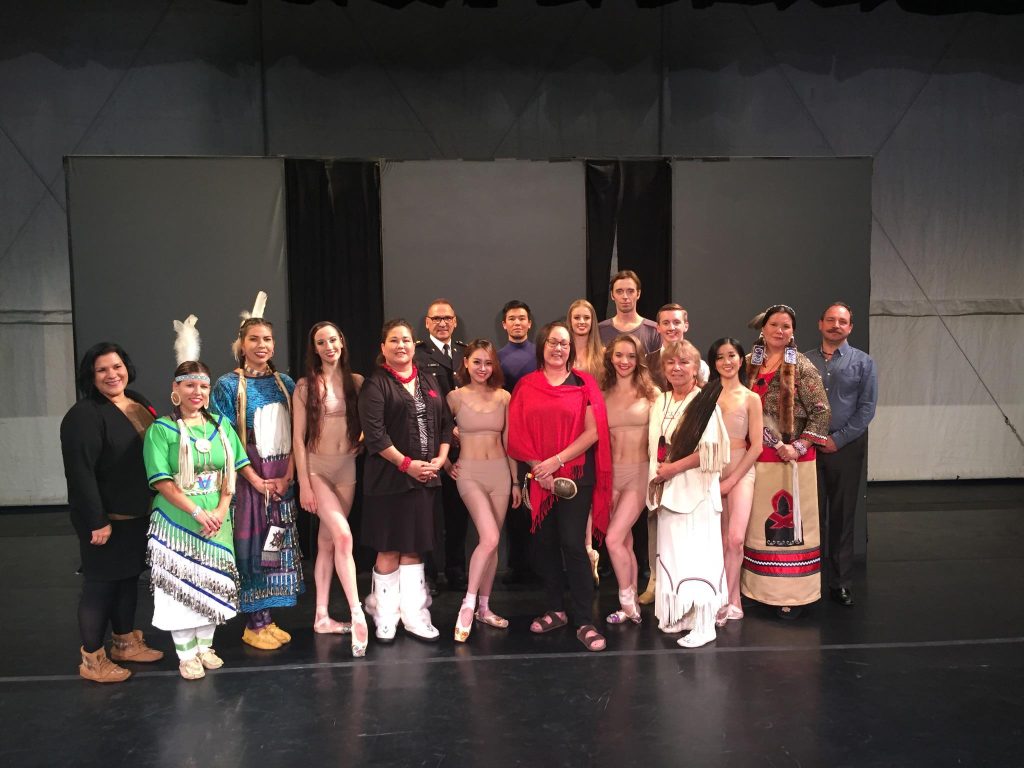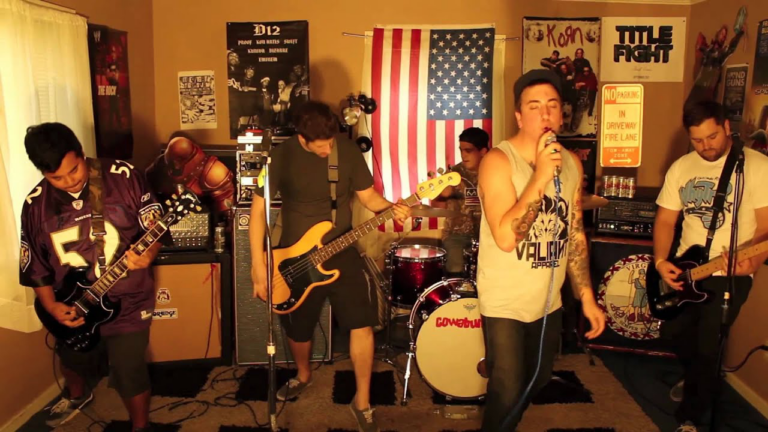In early October, Fredericton’s Playhouse was once again host to one of Atlantic Ballet Canada’s finest pieces: Ghosts of Violence. The ballet is passionately and heart-breakingly relevant as it tells stories of violence against women and girls. In a society that is becoming increasingly aware of the effects of gender-based and domestic violence against women, the ballet could not come at a more poignant time.
The ballet tells four separate stories, each one about a broken relationship that devolves into violence. The main character watches three times as relationships around her change and warp, each time thinking it will be different for her– but it isn’t. All of this is told through the art form of classical ballet. The story is all the more haunting for the way it is told through a vocabulary of movement.
Originally conceptualized around domestic violence against women in New Brunswick, Ghosts of Violence has recently teamed up with the Red Shawl Campaign and the Mi’kmaq-Wolastoquey Centre to deepen the narrative. For the past two years, the ballet has been re-envisioned, adding Indigenous art, music, and stories to pay a special tribute to missing and murdered Indigenous women and girls in Canada. The ballet’s choreographer Igor Dobrovolskiy, co-founder of the Atlantic Ballet Theatre of Canada and laureate of the Lieutenant-Governor’s Award for High Achievement in the Arts, was the mind behind the original ballet, which premiered for the first time in 2011.
“We’re raising awareness. This is the key message, especially for the younger generation,” Dobrovolskiy explained, speaking of domestic violence. “We don’t talk. [The ballet] is not any lecture, it’s not any explanation verbally. It’s the power of the music and the power of the movement.”
The re-imagined ballet began with the Wolastoq Song and transitioned to piano music as the ballet dancers moved in and began to tell the stories of the four women whose relationships fell apart. The classical movements of the ballet’s choreography blended seamlessly with performances by traditional Indigenous jingle dress dancers, who moved through the ballet dancers in the eerie quiet after acts of violence. The audience was entirely silent. The only sound was the soft jingle of the dancers as they moved across the stage, the bright colours of their dresses standing defiantly against the sadness of what had just occurred.
The Red Shawl Song signalled the end of the first act, and there was a sobering dance processional as the curtain fell. The pace picked up as the second act began and the ballet’s main character, referred to only as “She,” began to experience violence in her own relationship. The jingle dancers returned, their steps slightly faster. As the ballet finished and She realized all doors had closed to her and that she was trapped, performers sang the Strong Woman’s Song. There could not have been a more powerful ending to the story.
The Red Shawl Campaign works to highlight the tragedy of missing and murdered Indigenous women in Canada. Its collaboration with Atlantic Ballet Canada in Ghosts of Violence has never been more relevant than it is now, raising awareness about domestic and partner-based violence against women and members of the transgender and two-spirit communities. The second year of collaboration on the ballet brought back not only a beautiful blend of ballet and Indigenous dance, but also a sense of beauty in vocabulary. Samaqani Cocahq painted the dancers’ pointe shoes with images and words meaning mother, sister, grandmother, daughter, aunt. These words, as the dancers portraying abused women were literally dragged across the stage, shone out at the audience, reminding all that missing and murdered Indigenous women matter. They have families and loved ones who are still waiting and still trying to heal. Projects like Ghosts of Violence and the Red Shawl Campaign are trying to raise awareness so there will be no more stolen sisters, mothers, or daughters.
The Government of New Brunswick has a help number listed for anyone experiencing domestic or partner-based violence. The Fredericton Number is 506 458-9774, and the Women’s Equality Branch Violence Prevention Unit can be contacted toll-free at (877) 253-0266.




